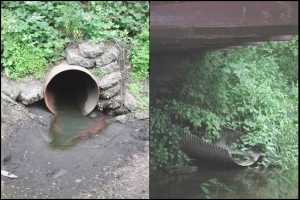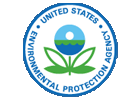December 18, 2013
Contacts:
John Felton, Rosemere Neighborhood Association, 360‐993‐4939
Brett VandenHeuvel, Columbia Riverkeeper, 503‐348‐2436
BIG WIN FOR CLEAN WATER: CLARK COUNTY AGREES TO IMPROVE SALMON HABITAT AND COMPLY WITH STORMWATER POLLUTION LAWS
County agrees to comply with stormwater pollution laws, fund significant stream restoration in lieu of
potential federal penalties
(Vancouver, WA) Clark County Commissioners voted today to improve salmon habitat and reduce dirty stormwater pollution as part of a binding settlement agreement with neighborhood and conservation groups.
“This is a win for clean water and healthy salmon runs in Clark County,” said John Felton, chair of the Rosemere Neighborhood Association. “This is a good result for the community as a whole.”
Rosemere Neighborhood Association along with Columbia Riverkeeper and the Northwest Environmental Defense Center challenged Clark County’s violation of laws designed to protect salmon and reduce pollution. After the County lost several rounds of litigation, the County has agreed to take steps to correct the problem. Clark County agreed to comply with the Clean Water Act and to provide $3 million in funding to an independent third party, the Lower Columbia Fish Recovery Board, that will oversee projects to protect and restore Clark County rivers and streams harmed by stormwater pollution. The settlement will need to be approved by the U.S. Department of Justice and the federal
court overseeing the lawsuit.
“This agreement means cleaner water and more salmon for the region as a whole,” stated Brett VandenHeuvel, Executive Director of Columbia Riverkeeper. “The County will now act to reduce polluted stormwater and invest in protecting salmon. It’s a win‐win.”
Stormwater pollution, which is created when rain mixes with debris, chemicals, dirt, and other pollutants and flows into storm sewer systems and then into local waterways, is the number one source of water pollution in urban and developing areas in Washington state.
The settlement comes after a state appeals board found that the County’s stormwater program violated the law—the state appeals board’s decision was upheld by the Washington Court of Appeals and state Supreme Court. At the same time, a federal judge concluded that the County’s stormwater program violated the Clean Water Act and the Court blocked continued implementation of the County’s illegal stormwater program. The federal court ruled last June that the County was liable for violating federal law, exposing it to potentially millions of dollars in penalties and corrective action for projects that were built to inadequate standards.
Under the County’s disputed stormwater program, damage to rivers and streams from the stormwater pollution had shifted burdens to taxpayers, from developers, to pay for the impacts of urban stormwater runoff. Impacts range from
Plaintiffs in the litigation were represented by attorneys Janette Brimmer and Jan Hasselman of Earthjustice.
*****
To view or download Press Release click here (pdf format)
Related articles:
The Columbian: Clark County to pay $3.6 million for violating Clean Water Act
The Oregonian: Clark County to pay $3 million as part of pollution settlement












![Washington State Water Quality Assessment [303(d)] Washington State Department of Ecology](http://www.rosemerena.org/home/wp-content/uploads/2009/03/ecy_logo.gif)

